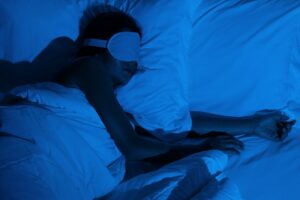 Ever wondered how our memories get sorted out while we sleep?
Ever wondered how our memories get sorted out while we sleep?
Well, a team of researchers led by Dr. Thomas Schreiner from Ludwig Maximilian University of Munich delved into this mystery. Back in 2021, they found a link between certain patterns of brain activity during sleep and the reactivation of memories. What wasn’t clear was if a central pacemaker controlled these patterns.
Advertisement
To unravel this, the researchers teamed up with scientists from the Max Planck Institute for Human Development in Berlin and the University of Oxford. Their new findings, published in Nature Communications, suggest that breathing might be the key orchestrator in consolidating memories during sleep.
They worked with 20 participants for their study, showing them 120 images associated with words over two sessions. After this learning phase, the participants took a nap in the sleep laboratory for about two hours. Upon waking, they were quizzed about the associations they had learned. Throughout this process, the researchers recorded brain activity using EEG and monitored their breathing.
Surprisingly, the researchers found that the sleeping brain spontaneously reactivates learned information during specific brain activity patterns known as slow oscillations and sleep spindles. Dr. Schreiner highlighted that the precision of this brain-memory coupling changes from childhood to adolescence, declining in aging individuals.
The team then explored the connection between breathing and brain activity. As breathing frequency changes with age, they found a clear link. “Our results show that our breathing and the emergence of specific brain patterns are connected,” says Dr. Schreiner. This insight reveals that breathing is important for cognition when awake and plays a crucial role in memory processing during sleep.
Considering that older individuals often face sleep, respiratory issues, and declining memory function, Dr. Schreiner plans to investigate these connections further. He aims to explore interventions such as the use of CPAP masks, already used for sleep apnea, to see if they make cognitive sense. This research could potentially open doors to better strategies for supporting memory consolidation during sleep, especially in older individuals.
